Program
Keynote Speaker
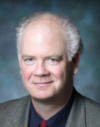 Joshua Epstein is Professor of Emergency Medicine at Johns Hopkins University, director of JHU’s Center for Advanced Modeling and co-director of its Systems Institute. He holds joint appointments in applied mathematics, civil engineering, economics, environmental health sciences, biostatistics, international health, and is External Professor at the Santa Fe Institute. A pioneer in agent-based modeling, Epstein has authored seminal books including Growing Artificial Societies: Social Science from the Bottom Up, with Robert Axtell (MIT Press, 1996); Generative Social Science: Studies in Agent-Based Computational Modeling (Princeton Press, 2006); and recently Agent_Zero: Toward Neurocognitive Foundations for Generative Social Science (Princeton University Press, 2013). He holds a Ph.D. from MIT, has taught at Princeton and lectured worldwide. In 2008, he received an NIH Director's Pioneer Award and in 2010 an Honorary Doctorate of Science from Amherst College, his alma mater. Joshua Epstein is Professor of Emergency Medicine at Johns Hopkins University, director of JHU’s Center for Advanced Modeling and co-director of its Systems Institute. He holds joint appointments in applied mathematics, civil engineering, economics, environmental health sciences, biostatistics, international health, and is External Professor at the Santa Fe Institute. A pioneer in agent-based modeling, Epstein has authored seminal books including Growing Artificial Societies: Social Science from the Bottom Up, with Robert Axtell (MIT Press, 1996); Generative Social Science: Studies in Agent-Based Computational Modeling (Princeton Press, 2006); and recently Agent_Zero: Toward Neurocognitive Foundations for Generative Social Science (Princeton University Press, 2013). He holds a Ph.D. from MIT, has taught at Princeton and lectured worldwide. In 2008, he received an NIH Director's Pioneer Award and in 2010 an Honorary Doctorate of Science from Amherst College, his alma mater.
Monday, December 7, 8:00am
Agent_Zero and Generative Social Science
Agent_Zero is a formal alternative to the rational actor model that has dominated social science since the 1940s. This software individual is the first to be endowed with distinct affective, deliberative, and social modules. Grounded in neuroscience, these internal facets interact to produce far-from-rational individual behavior. And when ensembles of these agents interact spatially they generate a panoply of social dynamics from genocide to financial panic to vaccine refusal. Epstein will discuss the background of Agent_Zero, demonstrate its application to an array of fields, and discuss future research directions including large-scale modeling in the economic, behavioral, and health sciences.
Titans of Simulation
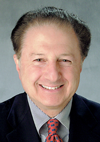 Averill M. Law is President of Averill M. Law & Associates, the world leader in simulation training. He has presented 535 simulation seminars in 20 countries on topics such as system design and analysis, model validation, and agent-based simulation. He is the author of the book Simulation Modeling and Analysis, with more than 158,000 copies in print and 15,000 citations. He was awarded the 2009 INFORMS Simulation Society Lifetime Professional Achievement Award. Previously, he was a faculty member at University of Wisconsin-Madison and University of Arizona, and has a Ph.D. in operations research from University of California at Berkeley. Averill M. Law is President of Averill M. Law & Associates, the world leader in simulation training. He has presented 535 simulation seminars in 20 countries on topics such as system design and analysis, model validation, and agent-based simulation. He is the author of the book Simulation Modeling and Analysis, with more than 158,000 copies in print and 15,000 citations. He was awarded the 2009 INFORMS Simulation Society Lifetime Professional Achievement Award. Previously, he was a faculty member at University of Wisconsin-Madison and University of Arizona, and has a Ph.D. in operations research from University of California at Berkeley.
Monday, December 7, 12:20pm
Discrete-Event and Agent-Based Simulation and Where to Use Each
Discrete-event simulation (DES) has been used since the late 1950s. In contrast, agent-based simulation (ABS) is much newer but has been the “hottest” topic in simulation since 2005, despite a lack of agreement on what is an agent or ABS. We carefully define DES and ABS, and discuss their similarities/differences. We argue that emergence is not a fundamental tenet of ABS, as is often suggested. We give three general situations where ABS will probably be required, and relate these to actual applications. The talk concludes with a discussion of the most-important developments in simulation technology in the last five years.
 Pierre L’Ecuyer is Professor in the Département d’Informatique et de Recherche Opérationnelle, the Université de Montréal, Canada. He holds the Canada Research Chair in Stochastic Simulation and Optimization. He is a member of the CIRRELT and GERAD research centers, and also benefits from an Inria International Chair in Rennes, France. His main research interests are random number generation, quasi-Monte Carlo methods, efficiency improvement via variance reduction, sensitivity analysis and optimization of discrete-event stochastic systems, and discrete-event simulation in general. He has served as Editor-in-Chief for ACM Transactions on Modeling and Computer Simulation from 2010 to 2013. He is currently Associate Editor for ACM Transactions on Mathematical Software, Statistics and Computing, and International Transactions in Operational Research. He has published over 250 scientific articles and book chapters, and has been a referee for over 130 different scientific journals. Pierre L’Ecuyer is Professor in the Département d’Informatique et de Recherche Opérationnelle, the Université de Montréal, Canada. He holds the Canada Research Chair in Stochastic Simulation and Optimization. He is a member of the CIRRELT and GERAD research centers, and also benefits from an Inria International Chair in Rennes, France. His main research interests are random number generation, quasi-Monte Carlo methods, efficiency improvement via variance reduction, sensitivity analysis and optimization of discrete-event stochastic systems, and discrete-event simulation in general. He has served as Editor-in-Chief for ACM Transactions on Modeling and Computer Simulation from 2010 to 2013. He is currently Associate Editor for ACM Transactions on Mathematical Software, Statistics and Computing, and International Transactions in Operational Research. He has published over 250 scientific articles and book chapters, and has been a referee for over 130 different scientific journals.
Tuesday, December 8, 12:20pm
Imitation Challenges: From Uniform Random Variables to Complex Systems
In stochastic simulation, we construct mathematical models to imitate the behavior of real systems, use computers to sample behavioral histories (sample paths) of these models, and exploit those samples to improve decision making with the real system. The imitation part can be very challenging, in particular for modeling uncertainty. Fitting univariate probability distribution to data is far from sufficient. Modeling the dependence is very important and much more challenging. It involves multivariate distributions, copulas, stochastic processes, and other complicated stochastic objects. Simulating the model on a computer also involves an imitation game, to simulate the realizations of random variables and stochastic processes with deterministic algorithms on a computer. Random number generation involves writing deterministic computer programs that can imitate simple probabilistic models such as independent uniform random variables uniformly distributed over the interval (0, 1). An “exact” algorithmic implantation of such models is theoretically impossible, so we settle for a reasonable fake. The talk will give snapshots and expose ideas collected from the author’s journey through stochastic simulation. The tour will start with random number generation and visit some challenging problems such as stochastic modeling, simulation-based optimization, rare events, simulation on parallel processors, and future challenges.
Military Keynote
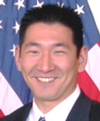 Timothy H. Chung is an Assistant Professor of Systems Engineering at the Naval Postgraduate School in Monterey, California. His research interests include modeling and analysis of operational settings involving unmanned systems, notably information gathering and sensor fusion for search and detection missions using probabilistic and optimization models. Combining algorithm development with field experimentation, active research pursuits include systems design of large teams of cooperating and adversarial robots. Such efforts involve integration of modeling, algorithms, hardware, simulation, human factors, and control, leveraging extensive research collaborations. He received a Ph.D. and M.S. at the California Institute of Technology in mechanical engineering and a B.S. in mechanical and aerospace engineering at Cornell University. Timothy H. Chung is an Assistant Professor of Systems Engineering at the Naval Postgraduate School in Monterey, California. His research interests include modeling and analysis of operational settings involving unmanned systems, notably information gathering and sensor fusion for search and detection missions using probabilistic and optimization models. Combining algorithm development with field experimentation, active research pursuits include systems design of large teams of cooperating and adversarial robots. Such efforts involve integration of modeling, algorithms, hardware, simulation, human factors, and control, leveraging extensive research collaborations. He received a Ph.D. and M.S. at the California Institute of Technology in mechanical engineering and a B.S. in mechanical and aerospace engineering at Cornell University.
Monday, December 7
Advancing Autonomous Swarm Capabilities: From Simulation to Experimentation
With increasing availability and proliferation of unmanned system technologies, such as unmanned aerial vehicles (UAVs) in civilian and military applications, both opportunities and challenges arise in addressing large numbers of robots capable of collective interactions. In this presentation, we present active research efforts in the Advanced Robotic Systems Engineering Laboratory (ARSENL) at the Naval Postgraduate School exploring future concepts, mathematical, algorithmic, and simulation models, and live-fly field experimentation of UAV swarms. We highlight and address a number of the specific considerations for modeling engagements between adversarial swarms of autonomous systems, in which the two swarms have opposing mission objectives. Such efforts require further development of autonomous swarm tactics, leveraging existing and future enabling technologies in a holistic, system-of-systems context. This presentation also provides results and lessons learned from both extensive simulation-based studies and also recent field experiments, as part of a live-fly testbed development effort to support rapid innovation and exploration of such future concepts for advanced research and education.
MASM Keynote
 John Fowler is the Motorola Professor and Chair of the Supply Chain Management Department at Arizona State University, Tempe AZ. He has published over 100 journal articles and over 100 conference papers in discrete event simulation, deterministic scheduling, and multi-criteria decision making, among others areas. He is a Fellow of the Institute of Industrial Engineers (IIE). He was the Founding Chair of the first MASM Conference in 2000. John Fowler is the Motorola Professor and Chair of the Supply Chain Management Department at Arizona State University, Tempe AZ. He has published over 100 journal articles and over 100 conference papers in discrete event simulation, deterministic scheduling, and multi-criteria decision making, among others areas. He is a Fellow of the Institute of Industrial Engineers (IIE). He was the Founding Chair of the first MASM Conference in 2000.
Monday, December 7
MASM: A Look Back and a Peek Ahead
The first Winter Simulation Conference (WSC) papers on the use of simulation in semiconductor manufacturing appeared in the late 1980s and then appeared regularly throughout the 1990s. The first WSC track on semiconductor manufacturing was in 1996 and it was repeated in most WSCs over the next decade. The first Modeling and Analysis of Semiconductor Manufacturing (MASM) conference took place in 2000. The focus of the MASM conference was the use of operations research and statistical tools and techniques (including but not limited to discrete event simulation) aimed at improving semiconductor manufacturing operations. In 2008, MASM became a conference within WSC, keeping its focus that is broader than just discrete event simulation applications. In this talk, the history of modeling and simulation of semiconductor manufacturing from the early days to the present time will be discussed. This will include the separate efforts of WSC and MASM and the current combined efforts. Finally, the future of MASM and the possibility of adding some formal structure to the MASM community will be proposed.
|
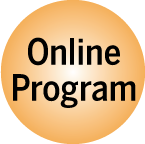
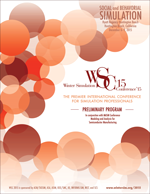
|
